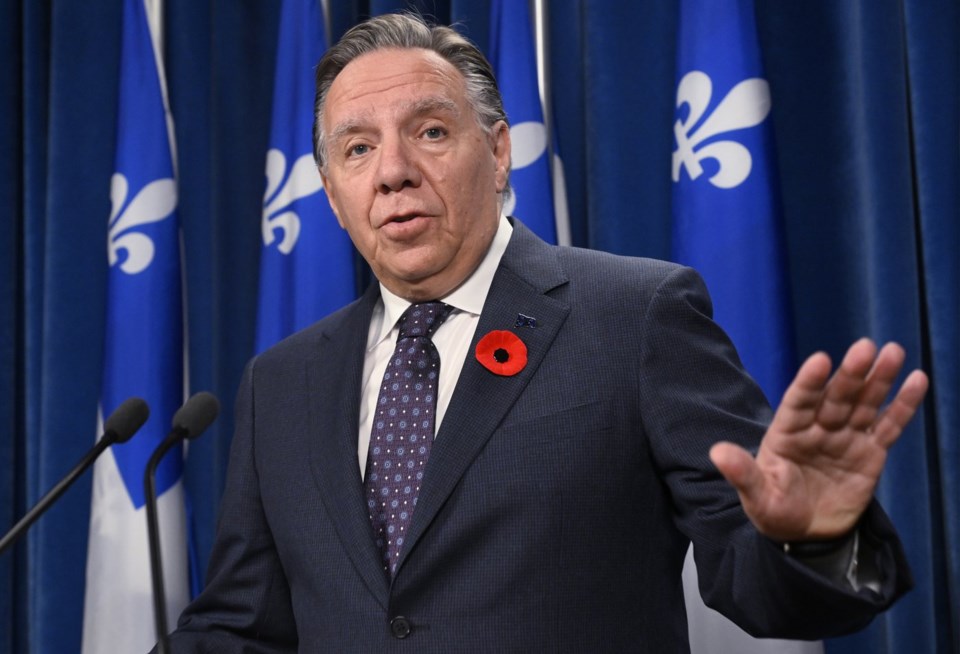MONTREAL — Quebec Premier François Legault says his government is prepared to use the notwithstanding clause to force doctors trained in Quebec universities to begin their careers in the province's public system.
Speaking to reporters at the legislature on Wednesday, the premier said his government is considering requiring medical graduates in Quebec to reimburse the government for the cost of their education unless they practise in the province for a certain number of years.
“If it's necessary, we are ready to use the notwithstanding clause. It's too important," Legault said. "We're short of doctors. The doctors we train at taxpayers' expense must practise in Quebec."
Legault, leader of the Coalition Avenir Québec, acknowledged that such a move may contravene the Charter of Rights and Freedoms, saying he had looked into the issue when he was minister of education for his previous political party, the Parti Québécois.
He said he had concluded that the government would have to use the notwithstanding clause to override Section 15 of the Canadian, which deals with equality rights and discrimination.
The notwithstanding clause is a provision in the Charter that allows federal, provincial and territorial governments to pass laws that override certain Charter rights for up to five years, a period that can be renewed by a vote in the legislature . The Legault government has previously used the clause to shield its secularism law and its language law reforms from Charter challenges.
The premier’s comments expanded on Health Minister Christian Dubé's announcement on Sunday that he will table legislation requiring family doctors and specialists to start their careers in Quebec's public network.
Constitutional lawyer and Université de Montréal instructor Frédéric Bérard says the Legault government's proposal would violate Canadians' mobility rights — the right to move to any part of the country to take up residence or make a living — which are guaranteed in Section 6 of the Charter, not Section 15. He pointed out that the notwithstanding clause cannot be used to override Section 6 rights.
“If Legault is saying that he wants to invoke the notwithstanding clause, it means that he knows a fundamental right is violated,” Bérard said. “(Legault) is instrumentalizing the rule of law for political gain.”
The Quebec government estimates that it costs between $435,000 and $790,000 to train a doctor, including during their residency.
On Monday, a spokesperson for Dubé said that 400 of the 2,536 doctors who completed their studies between 2015 and 2017 left the province. Currently, 2,355 doctors trained in Quebec are practising in Ontario, including 1,675 who attended McGill University.
Data from the Canadian Institute for Health Information show that 60 per cent of family doctors who had recently graduated in Quebec were still practising in the province in 2022, while nearly 20 per cent had moved to Ontario.
The government has also said that 775 of Quebec's 22,479 practising physicians are working exclusively in the private sector, an increase of 70 per cent since 2020, with the trend especially prevalent among new doctors.
This report by The Canadian Press was first published Nov. 6, 2024.
Joe Bongiorno, The Canadian Press



